Testosterone is a hormone that plays a crucial role in men’s overall health and well-being. From building muscle mass to maintaining bone density, it has numerous important functions in the body. However, as men age, their testosterone levels naturally decline, leading to various symptoms such as decreased libido, fatigue, and mood swings. Fortunately, there are several ways to increase testosterone levels naturally through lifestyle changes and certain supplements.
In this guide on how to increase testosterone levels, we will explore these methods in detail and provide practical tips for boosting this vital hormone for optimal physical and mental performance.
Understanding Testosterone and Its Importance
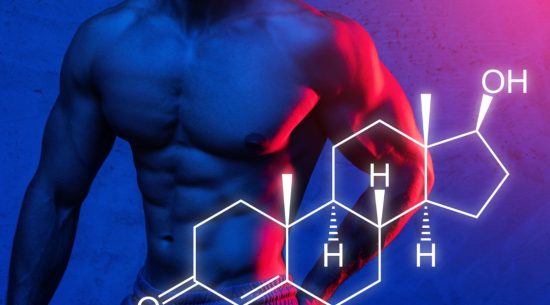
Testosterone is a hormone primarily produced in the testicles (though smaller amounts are also secreted by the ovaries in females and the adrenal glands in both genders). It plays a crucial role in the development and maintenance of male characteristics, such as muscle mass, facial hair, deep voice, and sexual function.
However, testosterone is not limited to males; it is also important for women, albeit in smaller quantities, contributing to bone health, libido, and overall well-being. Beyond its role in sexual characteristics, testosterone impacts various bodily functions, including metabolism, mood, cognition, and energy levels.
Understanding testosterone and its importance can help individuals address potential imbalances to optimize their physical and mental health. Regular exercise, a balanced diet, adequate sleep, and stress management are key factors in maintaining healthy testosterone levels.
Factors That Affect Testosterone Levels
- Age: Testosterone levels tend to peak during adolescence and early adulthood and gradually decline with age, typically starting around the age of 30.
- Lifestyle: Certain lifestyle choices can impact testosterone levels. Factors such as sedentary behaviour, excessive alcohol consumption, smoking, inadequate sleep, chronic stress, and a poor diet can contribute to lower testosterone levels.
- Obesity: Being overweight or obese is associated with lower testosterone levels. Fat cells convert testosterone into estrogen, leading to hormonal imbalances.
- Chronic Illnesses: Certain medical conditions, such as diabetes, liver or kidney disease, and hormonal disorders (like hypogonadism or pituitary gland abnormalities), can affect testosterone production.
- Medications: Some medications, including corticosteroids, opioids, and certain hormones used in hormone replacement therapy or birth control, can impact testosterone levels.
- Nutritional Deficiencies: Inadequate intake of essential nutrients, particularly zinc, vitamin D, and magnesium, can affect testosterone production.
- Environmental Factors: Exposure to endocrine-disrupting chemicals found in plastics, pesticides, and certain household products may interfere with testosterone production and regulation.
- Sleep Disorders: Conditions such as sleep apnea and chronic insomnia have been associated with lower testosterone levels.
- Physical Activity: Regular exercise, especially resistance training and high-intensity interval training, can help boost testosterone levels.
- Genetic Factors: Some individuals may have a genetic predisposition to naturally lower or higher testosterone levels.
Signs and Symptoms of Low Testosterone
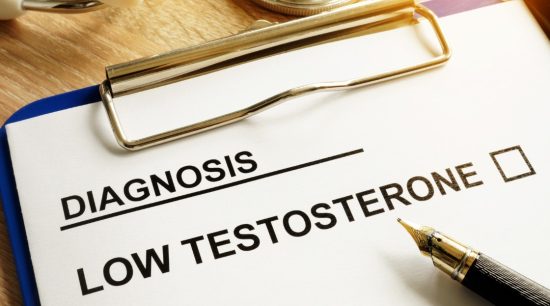
Low testosterone levels can have a significant impact on various aspects of our health and well-being.
- Reduced Sex Drive (Libido)
- Erectile Dysfunction
- Hair Loss
- Loss of Lean Muscle Mass
- Fatigue
- Obesity/Weight Gain
- Depression and Mood Swings
Recognizing these signs and symptoms is crucial in identifying potential issues related to testosterone deficiency. If you suspect you may have low testosterone, consult with a healthcare professional who can provide appropriate guidance and treatment options tailored specifically for you.
How to Increase Testosterone?
1. Regular Exercise

Engaging in regular exercise is vital for maintaining optimal testosterone levels. Both cardiovascular activities and resistance training play a crucial role. Cardio workouts enhance blood flow, delivering oxygen and nutrients to muscles responsible for testosterone production.
Resistance training signals the body to produce more testosterone to support muscle growth and repair. A balanced routine, incorporating at least 150 minutes of moderate-intensity aerobic activity per week and strength training twice a week targeting major muscle groups, can have a synergistic effect on testosterone levels.
It’s essential to gradually increase intensity and seek guidance from fitness professionals for a personalized plan.
2. Maintain a Healthy Weight
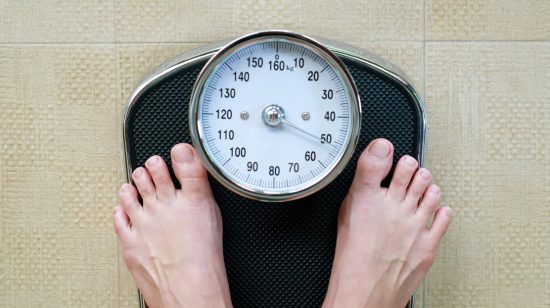
Maintaining a healthy weight is integral for optimal testosterone levels. Excessive weight gain and obesity are linked to lower testosterone production. A well-balanced diet, rich in nutrient-dense foods, supports hormone production.
Monitoring portion sizes and avoiding overconsumption is crucial. Individualised advice can be obtained by consulting with dietitians or other medical specialists. Additionally, incorporating whole foods rich in zinc, vitamin D, and other nutrients essential for testosterone synthesis can be beneficial.
Achieving a healthy weight through balanced nutrition not only aids testosterone production but also promotes overall well-being.
3. Get Sufficient Sleep

Getting enough sleep is essential to sustaining healthy testosterone levels. Aim for 7 to 9 hours of quality sleep each night to support the body’s natural hormonal balance. Establishing a consistent bedtime routine and creating a conducive sleep environment are essential. Insufficient sleep can lead to increased cortisol levels, disrupting testosterone production.
If sleep disturbances persist, consulting a sleep specialist may be necessary to address underlying issues. Prioritizing good sleep hygiene, such as avoiding electronic devices before bedtime, is vital for improving sleep quality and supporting hormonal health.
4. Manage Stress

Stress management is paramount for maintaining healthy testosterone levels. Chronic stress can negatively impact hormonal balance, including testosterone production. Incorporating stress-relief techniques like meditation, deep breathing exercises, or engaging in relaxing activities is crucial. Mindfulness practices can be effective in promoting mental well-being and reducing stress levels.
Experimenting with various stress-management techniques allows individuals to find what resonates with them personally. A holistic approach to managing stress not only supports testosterone production but also contributes to overall mental and emotional well-being.
5. Optimize Vitamin D Levels

Optimizing vitamin D levels is essential for boosting testosterone naturally. Sunlight exposure triggers vitamin D production in the body, and aiming for at least 15 minutes of sunlight daily is recommended. Consider vitamin D pills if your exposure to sunshine is restricted. Including vitamin D-rich foods in the diet, such as fatty fish, fortified dairy products, and egg yolks, is beneficial.
Regular monitoring of vitamin D levels through blood tests ensures adequacy. Balancing sunlight exposure, dietary choices, and supplementation contributes to overall health and supports optimal testosterone production.
6. Consume Healthy Fats
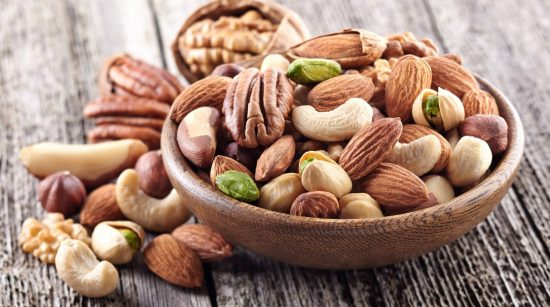
The inclusion of healthy fats in the diet is key to increasing testosterone levels naturally. Monounsaturated and omega-3 fatty acids from sources like avocados, nuts, seeds, and fatty fish provide essential building blocks for hormone production. Adopting a Mediterranean-style diet, rich in healthy fats, has been associated with improved hormonal balance.
Incorporating these fats into daily meals ensures a nutrient-dense approach to supporting testosterone synthesis. Emphasizing whole, unprocessed foods and avoiding trans fats contributes not only to hormonal health but also to overall cardiovascular well-being.
7. Minimize Alcohol Consumption

Moderating alcohol consumption is crucial for maintaining healthy testosterone levels. Excessive and frequent drinking has been linked to disruptions in hormonal balance, leading to lower testosterone production. Adhering to recommended guidelines, such as no more than one standard drink per day for women and up to two drinks per day for men, is essential.
Incorporating alcohol-free days into the routine allows for better hormonal regulation. Awareness of the potential impact of alcohol on hormonal health underscores the importance of moderation for overall well-being.
8. Stay Hydrated

Staying adequately hydrated is fundamental for overall health and hormone production, including testosterone. Drinking at least 8 cups (64 ounces) of water daily supports bodily functions such as temperature regulation, nutrient transport, and toxin elimination.
Maintaining consistent fluid intake throughout the day, including herbal teas or infused waters, contributes to hydration. Reducing the consumption of sugary beverages is essential, as excess sugar intake can negatively impact hormonal health. Prioritizing water consumption and choosing beverages that support overall well-being is a simple yet effective strategy for hormone optimization.
9. Consider Herbal Supplements
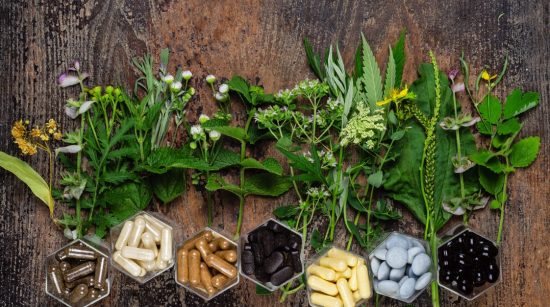
Herbal supplements, including ashwagandha, fenugreek, and tongkat ali, have been explored for their potential to support testosterone production. Ashwagandha, an adaptogenic herb, may positively affect testosterone levels, while fenugreek contains compounds that stimulate luteinizing hormone release. Tongkat ali has been traditionally used as an aphrodisiac and energy booster.
Before incorporating herbal supplements, consulting with a healthcare professional is crucial. Personalized advice, dosage recommendations, and consideration of potential interactions with other medications ensure a safe and informed approach to using herbal supplements for hormonal health.
10. Visit a Healthcare Professional

If there is suspicion of low testosterone levels, seeking guidance from a healthcare professional specializing in hormone health is essential. A thorough examination, including a detailed medical history and blood tests, provides an accurate diagnosis. Based on the results, healthcare professionals can recommend personalized treatment options. These may include lifestyle modifications, such as exercise and dietary changes, or hormonal therapy if necessary.
Collaborating with a healthcare provider ensures an evidence-based and tailored approach to optimizing testosterone levels, addressing concerns, and promoting overall well-being. Seeking expert advice is crucial for accurate diagnosis and effective management of hormonal imbalances.
Conclusion
In conclusion, increasing testosterone levels can have numerous benefits, such as improved muscle strength, increased libido and improved overall health. By following a balanced diet, exercising regularly, managing stress, and incorporating certain supplements, one can effectively boost one’s testosterone levels.
It is important to consult with a healthcare professional before making any significant changes to ensure proper guidance and safety. With dedication and consistency, it is possible to increase testosterone levels naturally and achieve optimal hormonal balance for better physical and mental well-being.
FAQs – How to Increase Testosterone?
What foods raise testosterone?
Foods like lean meats, fish, eggs, nuts, seeds, fruits, vegetables, and whole grains can support overall health and potentially contribute to optimal testosterone levels. However, no specific food has been proven to raise testosterone on its own significantly.
Which testosterone booster is best?
The effectiveness of testosterone boosters varies from person to person. It’s best to consult with a healthcare professional to determine if a testosterone booster is suitable for you and to discuss the best options available.
Does coffee boost testosterone?
There is limited evidence suggesting that caffeine in coffee may have a minor, temporary effect on boosting testosterone levels. However, this effect is minimal and unlikely to have a significant impact.
Are eggs good for testosterone?
Eggs are a nutritious food and contain important nutrients for overall health. They are a good source of protein, vitamins, and minerals, including vitamin D, which is associated with testosterone production. However, their direct impact on testosterone levels needs to be well-established.
Do bananas boost testosterone?
Bananas are a nutritious fruit but do not have any significant effect on testosterone levels. Consuming a balanced diet with a variety of fruits and vegetables is beneficial for overall health, but specific foods cannot reliably boost testosterone.
How can I check my testosterone level at home?
To check your testosterone levels accurately, it is best to consult with a healthcare professional and undergo a blood test. At-home testosterone tests available online typically involve collecting a saliva or blood sample and sending it to a laboratory for analysis. However, the accuracy and reliability of at-home tests may vary, so it is recommended to consult with a healthcare professional for accurate testing and interpretation of results.

